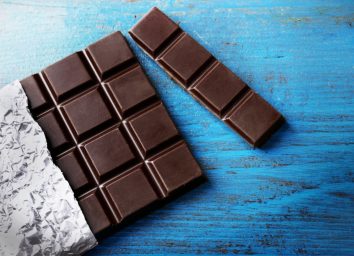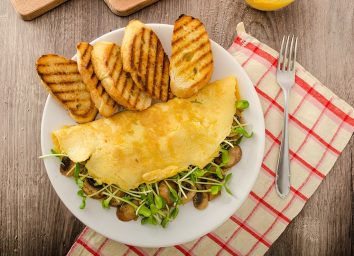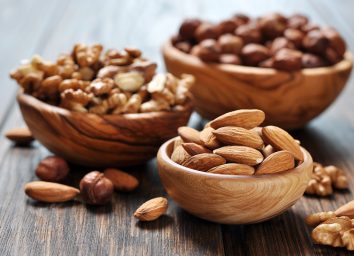16 Foods That Boost Your Mood and Fight Depression

"Meet me at the ice cream shop," my friend Christine texted me.
This was code for "I'm feeling blue and I need to talk." Christine always wanted to meet for ice cream whenever she needed a pick-me-up. And lately, with the back-to-school rush setting in, she'd been struggling more than ever. As much as I like being there for a friend in need, it was time to do more than just listen.
"I've got a better idea," I texted back. "Let's hit a farmers' market."
While ice cream and potato chips might be up there on the list of foods to dig into when you're down, real comfort food comes from a healthier place. In fact, people who eat nuts, fruit, vegetables and fish have a significantly lower incidence of depression than those who eat sweets or processed foods, according to a meta-analysis published in Molecular Psychiatry. The researchers found that those who ate more sweets and processed foods were more likely to be diagnosed with or treated for depression than those who ate primarily whole foods. The reason, researchers speculate, is that the nutrients in whole foods protect our brains from the onset of depression.
I took Christine on a tour of some of my favorite food vendors, and while she complained about her love life, I bought her some of these 16 new foods that fight depression.
Mussels
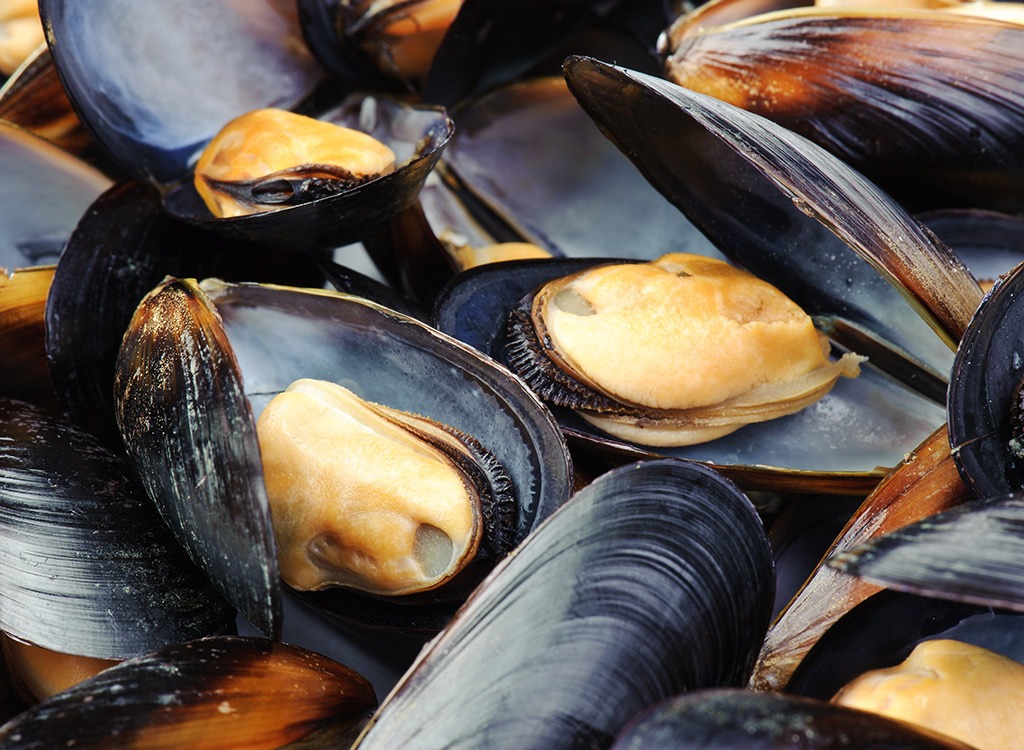
Mussels are loaded with some of the highest naturally occurring levels of vitamin B12 on the planet—a nutrient that most of us are lacking. So what's B12's mood-saving trick? It helps insulate your brain cells, keeping your brain sharp as you age. Mussels also contain the trace nutrients zinc, iodine, and selenium, which keep your mood-regulating thyroid on track. Another benefit? Mussels are high in protein and low in fat and calories, making them one of the healthiest, most nutrient-dense seafood options you'll find.
Eat This, Not That! Tip
For mussels that are good for your body and the environment, look for farmed—not wild—options raised in the good ol' USA.
Swiss Chard
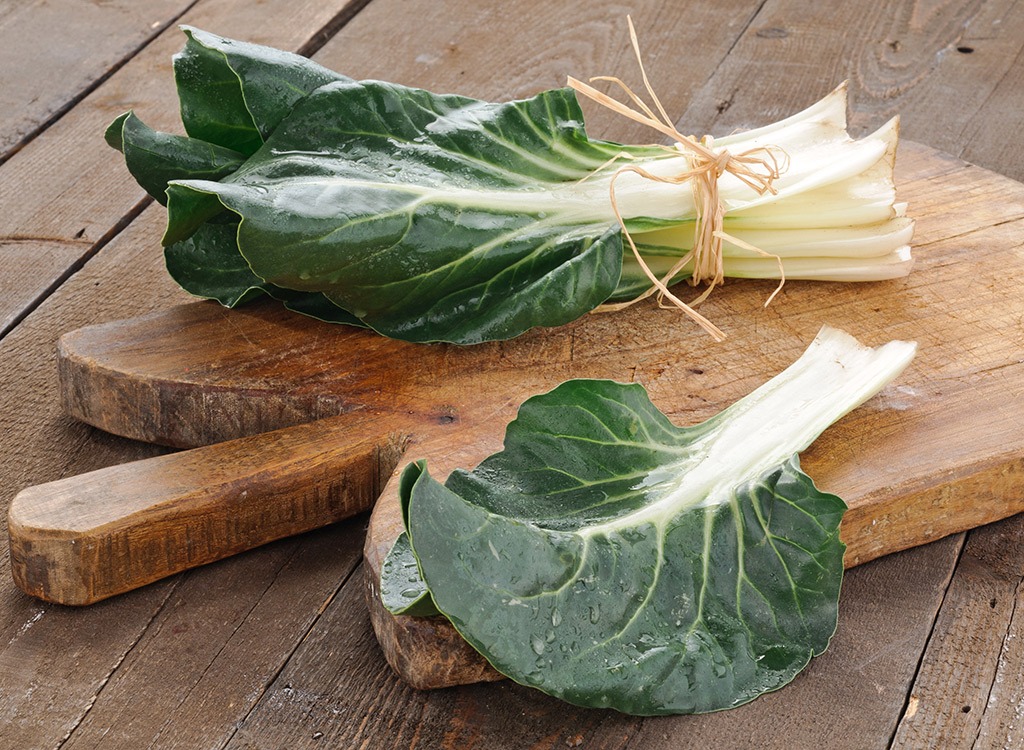
This leafy green is packed with magnesium—a nutrient essential for the biochemical reactions in the brain that increase your energy levels. A 2009 study in the Australian and New Zealand Journal of Psychiatry also found that higher magnesium intake was associated with lower depression scores. And Swiss chard isn't the only way to get your magnesium hit.
Eat This, Not That! Tip
Spinach, soybeans, and halibut also contain healthy doses of the energy-enhancing nutrient.
Blue Potatoes
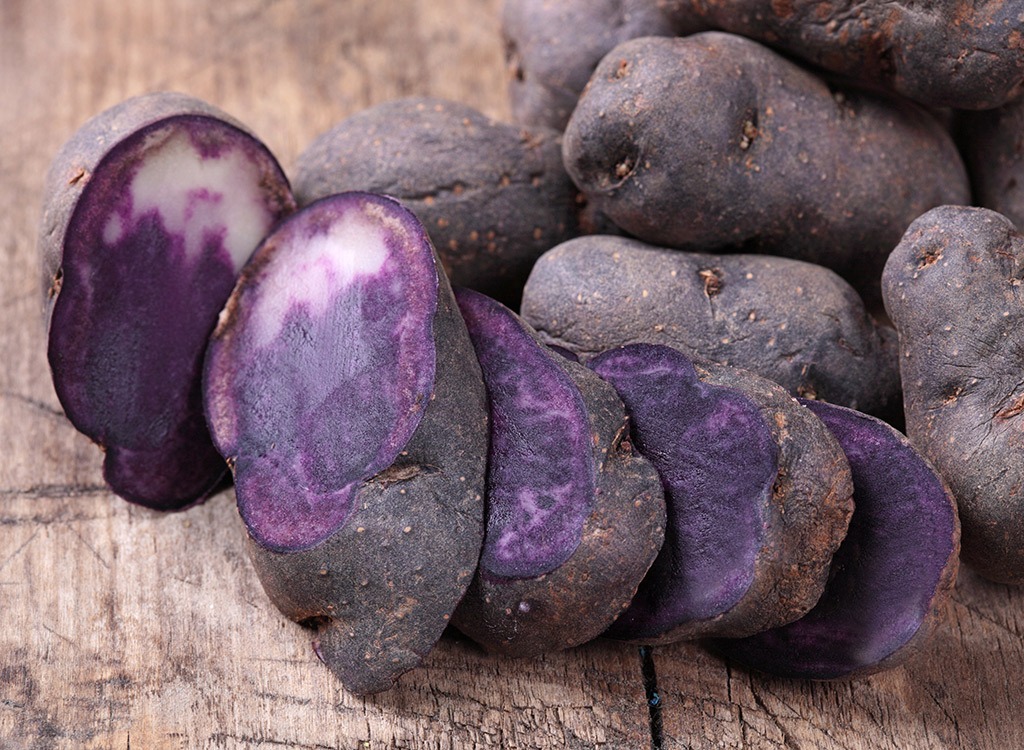
Blue potatoes aren't a common supermarket find, but they're worth looking out for on your next trip to the farmer's market. Blue spuds get their color from anthocyanins, powerful antioxidants that provide neuro-protective benefits like bolstering short-term memory and reducing mood-killing inflammation. Their skins are also loaded with iodine, an essential nutrient that helps regulate your thyroid.
Eat This, Not That! Tip
Other awesome anthocyanin-rich foods: berries, eggplant, and black beans.
Dark Chocolate
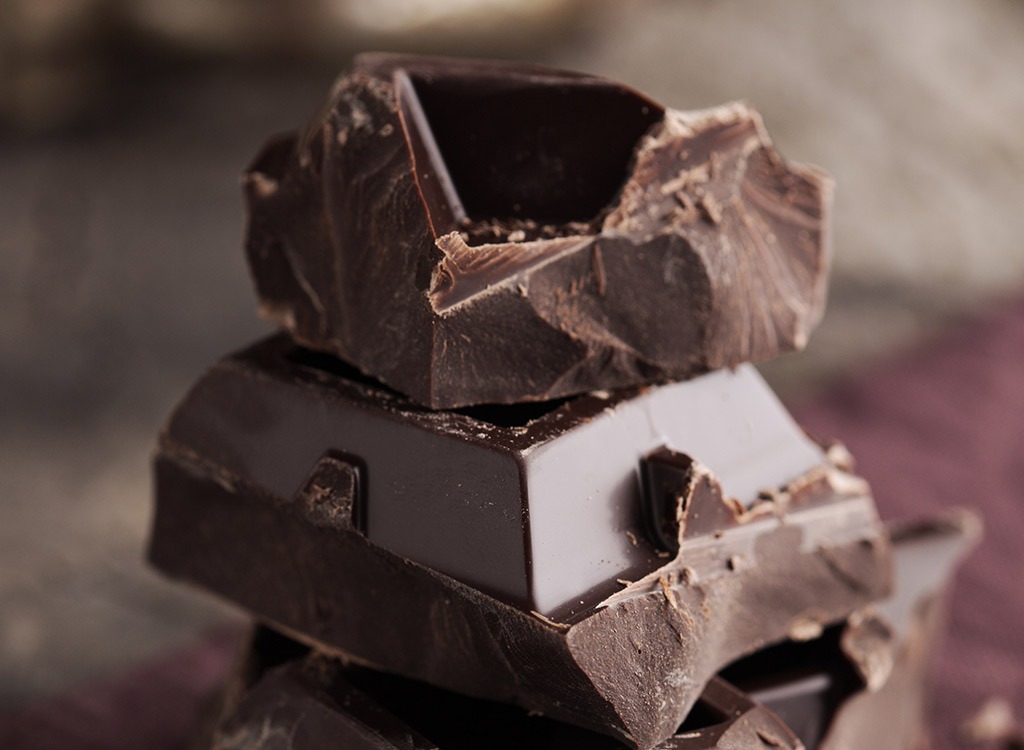
Turns out chocolate's delicious taste isn't the only reason it makes you feel so warm and fuzzy. The cocoa treat also gives you an instant boost in mood and concentration, and improves blood flow to your brain, helping you feel more vibrant and energized. But sorry, Snickers bars don't count. Cocoa is the chocolate ingredient that does your body good, so pure dark chocolate is your best bet if you want the mood-boosting benefits minus the extra belly flab.
Eat This, Not That! Tip
Don't overdo it: A recent study published in the Journal of Psychopharmacology found that a few ounces of dark chocolate a day is all you need to reap the benefits.
Grass-Fed Beef
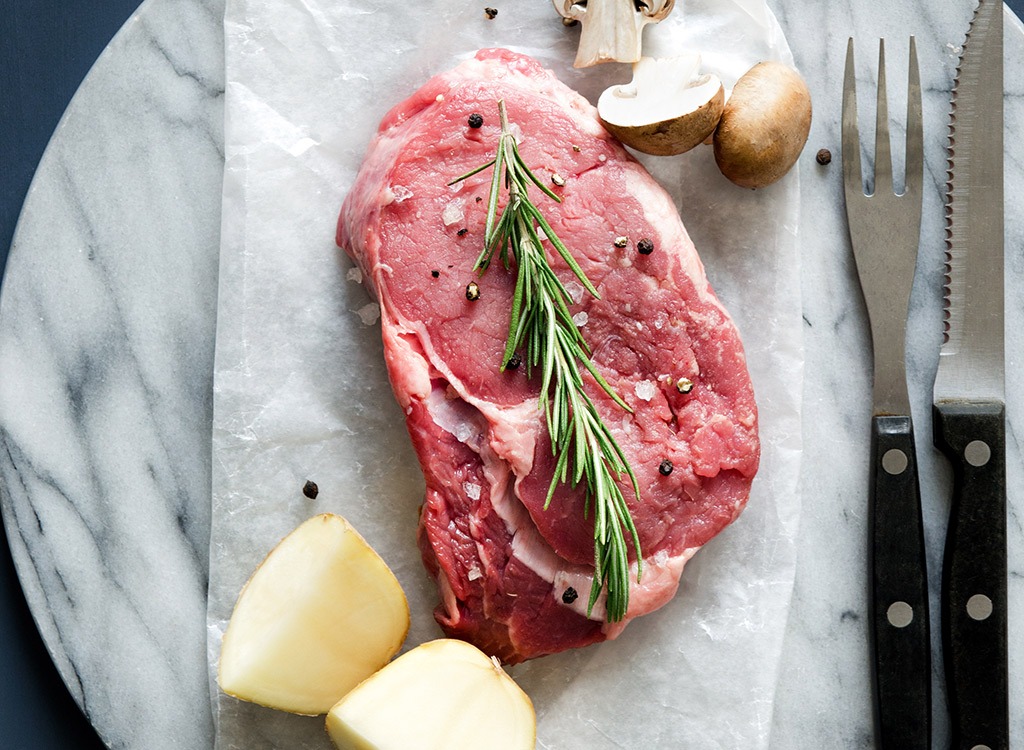
Animals raised on grass pastures boast much higher levels of healthy conjugated linoleic acid (or CLA), a "happy" fat that combats stress hormones and blasts belly fat. Grass-fed beef also has a lower overall fat count and contains higher levels of heart-healthy omega-3 fatty acids compared to grain-feed beef. Another great grass-fed option: lamb. It's packed with iron, a nutrient vital for a stable mood (the areas of the brain related to mood and memory contain the highest iron concentrations).
Greek Yogurt
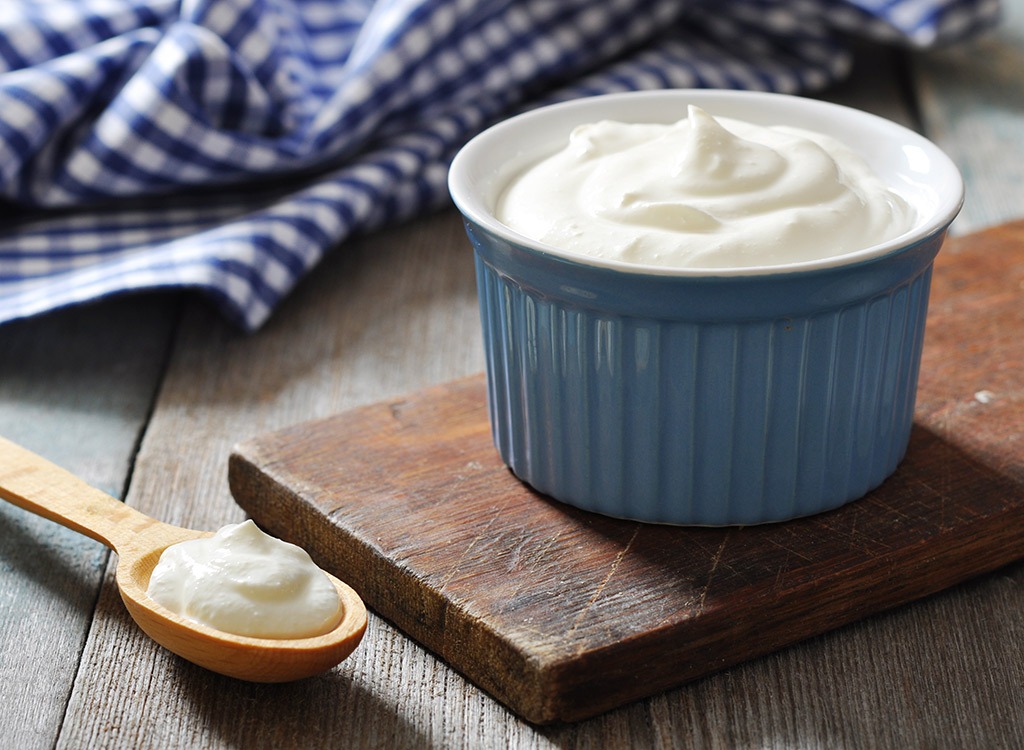
This dairy pick is packed with more calcium than you'll find in milk or regular yogurt, which is good news for your mood. Calcium gives your body the "Go!" command, alerting your brain to release feel-good neurotransmitters. As a result, inadequate calcium intake can lead to anxiety, depression, irritability, impaired memory, and slow thinking. Greek yogurt also contains more protein than regular yogurt, making it a terrific stay-slim snack.
Eat This, Not That! Tip
Our Greek-yogurt pick: Fage Total 2%, which packs an impressive 10 grams of protein per serving. And click here for the essential list the best yogurts for weight loss!
Asparagus
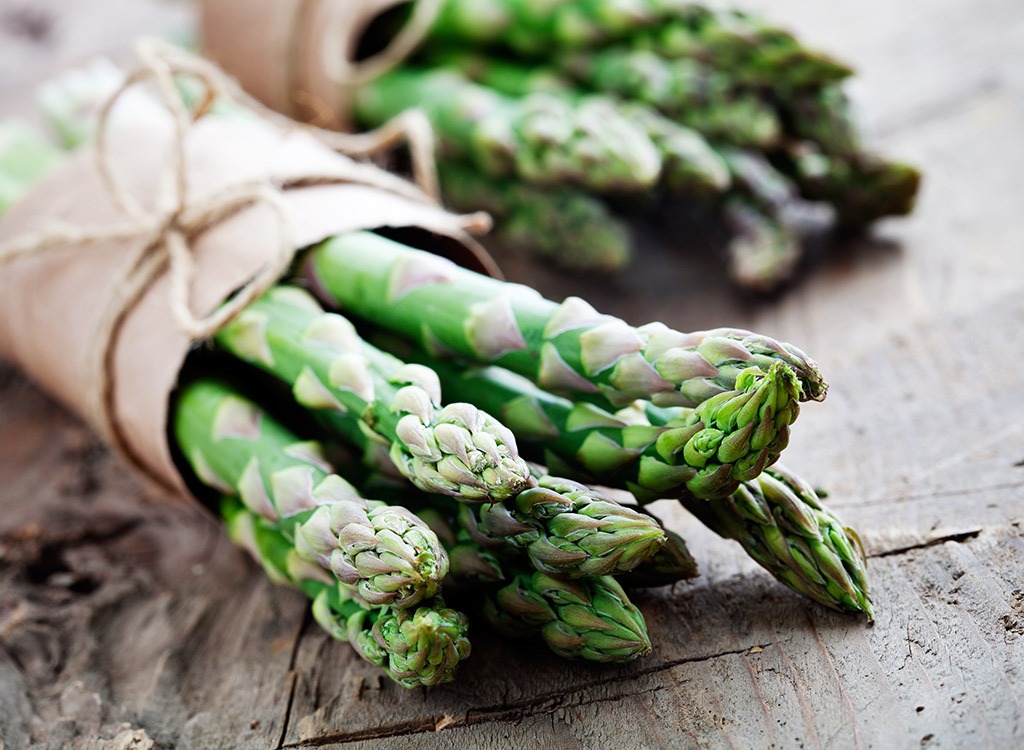
Your mom was on to something when she made you finish those green spears at the dinner table. This vegetable is one of the top plant-based sources of tryptophan, which serves as a basis for the creation of serotonin—one of the brain's primary mood-regulating neurotransmitters. Asparagus also boasts high levels of folate, a nutrient that may fight depression (research shows that up to 50 percent of people with depression suffer from low folate levels).
Eat This, Not That! Tip
Some other terrific sources of tryptophan: turkey, tuna, and eggs.
Honey

Honey, unlike table sugar, is packed with beneficial compounds like quercetin and kaempferol that reduce inflammation, keeping your brain healthy and warding off depression. Honey also has a less dramatic impact on your blood-sugar levels than regular sugar, so it won't send your body into fat-storage mode the way the white stuff can.
Eat This, Not That! Tip
Try adding some honey to your afternoon tea or morning bowl of oatmeal, but don't go overboard; the sweet nectar has 17 g of sugar and 64 calories per tablespoon, so too much honey can make you heavy, rather than happy.
Cherry Tomatoes
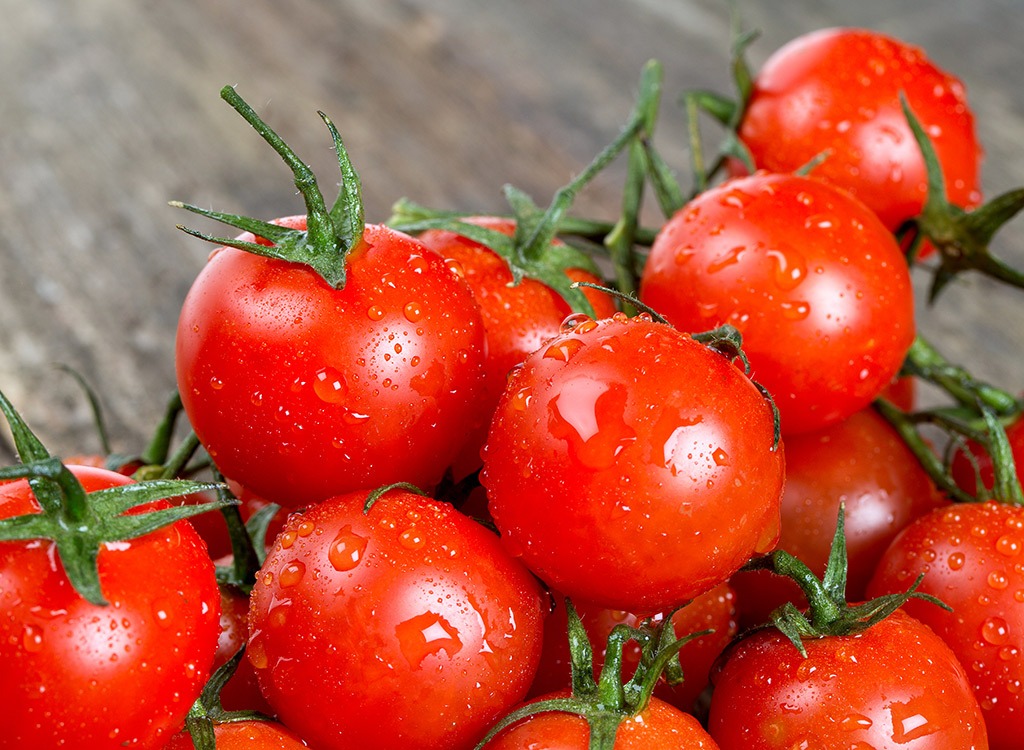
Tomatoes are a great source of lycopene, an antioxidant that protects your brain and fights depression-causing inflammation. And because lycopene lives in tomato skins, you'll get more of the stuff if you throw a handful of cherry tomatoes into your next salad instead of slicing up one full-size tomato. Or enjoy them on their own with a little olive oil, which has been shown to increase lycopene absorption.
Eat This, Not That! Tip
Try to go organic whenever possible: Researchers at the University of California-Davis found that organic tomatoes have higher lycopene levels.
Eggs
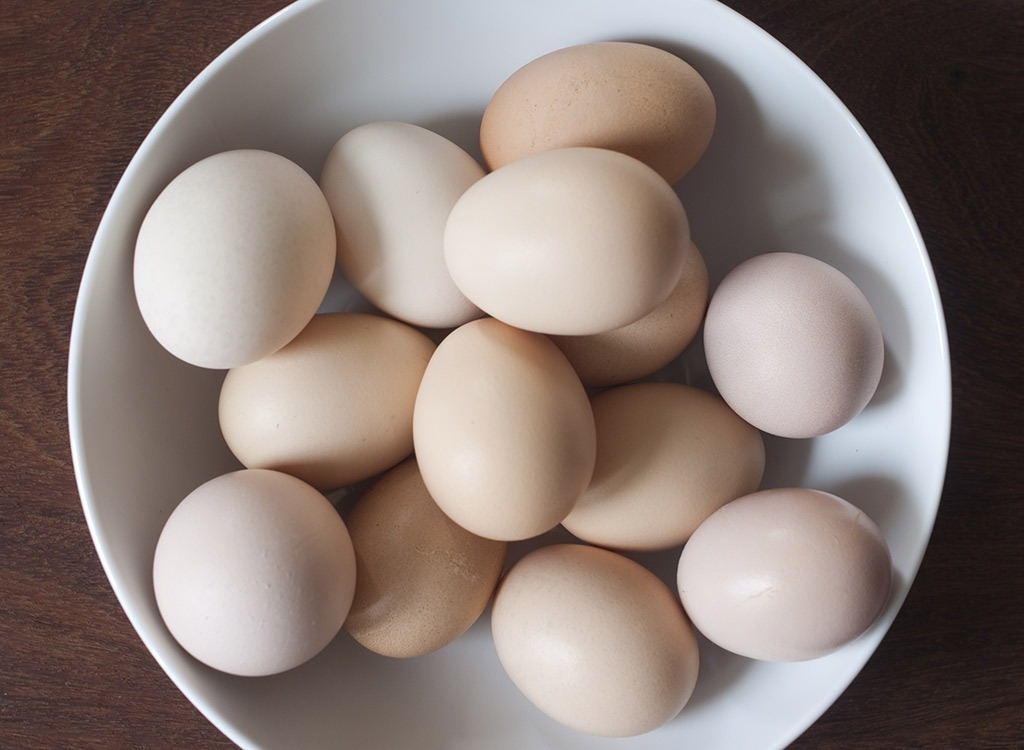
Eggs are loaded with mood-promoting omega-3 fatty acids, zinc, B vitamins, and iodide, and because they're packed with protein, they'll also keep you full and energized long after you eat them. Need another reason to crack some shells in the morning? A 2008 study in the International Journal of Obesity found that people who ate two eggs for breakfast lost significantly more weight than those who ate a bagel breakfast.
Eat This, Not That! Tip
Don't buy into unregulated supermarket-egg claims like "omega-3 enriched" or "free-range." If you're looking for the most natural eggs, hit up a local farmer. And for more ways to make sure you don't get taken by evil food marketers, read these tips for how to pick the best eggs!
Coconut
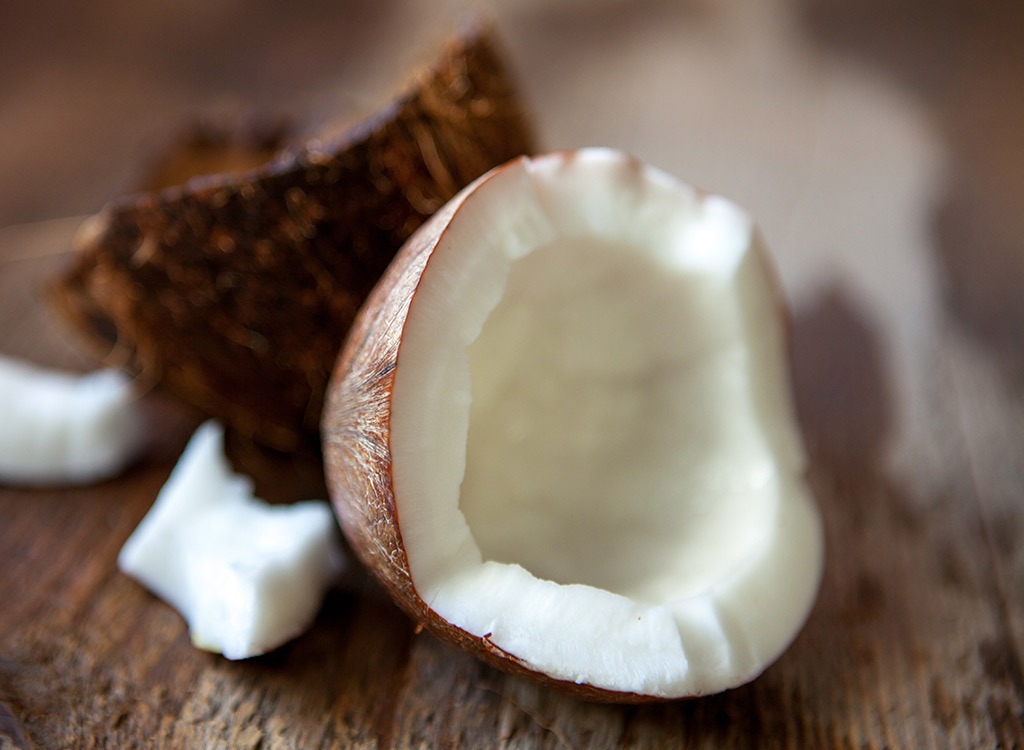
Coconut is chock-full of medium-chain triglycerides, fats that keep your brain healthy and fuel better moods. And although coconut is commonly found in high-calorie desserts, you don't have to (and shouldn't) stuff your face with macaroons to get your fix.
Eat This, Not That! Tip
Try throwing some unsweetened coconut shavings in your oatmeal or yogurt, or toss some in your next healthy smoothie for a flavor boost that will keep you smiling and skinny.
Red Peppers
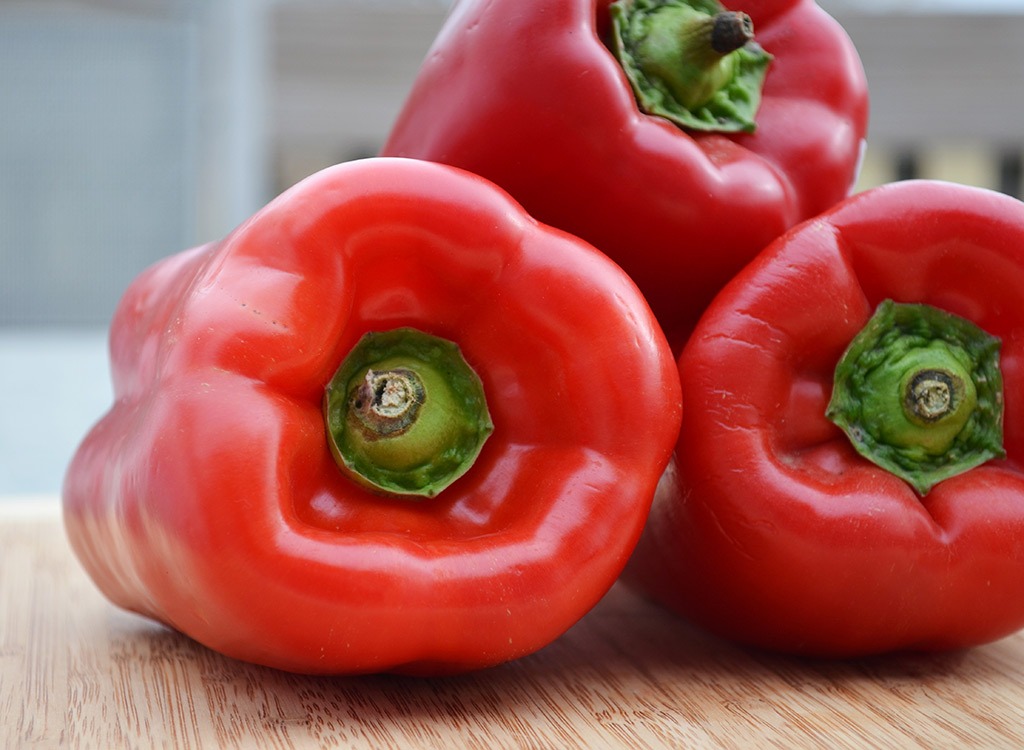
Why red? Aren't all peppers the same? In fact, red bell peppers—which have been allowed to ripen on the vine and not picked when still green—have considerably higher nutrient scores than their underdeveloped brethren—more than double the vitamin C and up to 8 times as much vitamin A. In a recent survey of nutrient density, researchers at William Paterson University ranked red peppers as second only to leafy greens as the most potent of vegetables. The higher concentration of vitamins helps to not only improve your mood directly but to also boost your immune system and lessen cold symptoms.
Eat This, Not That! Tip
Stir-fry or roast them if you're not down with nibbling them raw to get the most of their vitamins and nutrients. And click here to see why peppers are one of the best foods for your penis!
Pumpkin Seeds
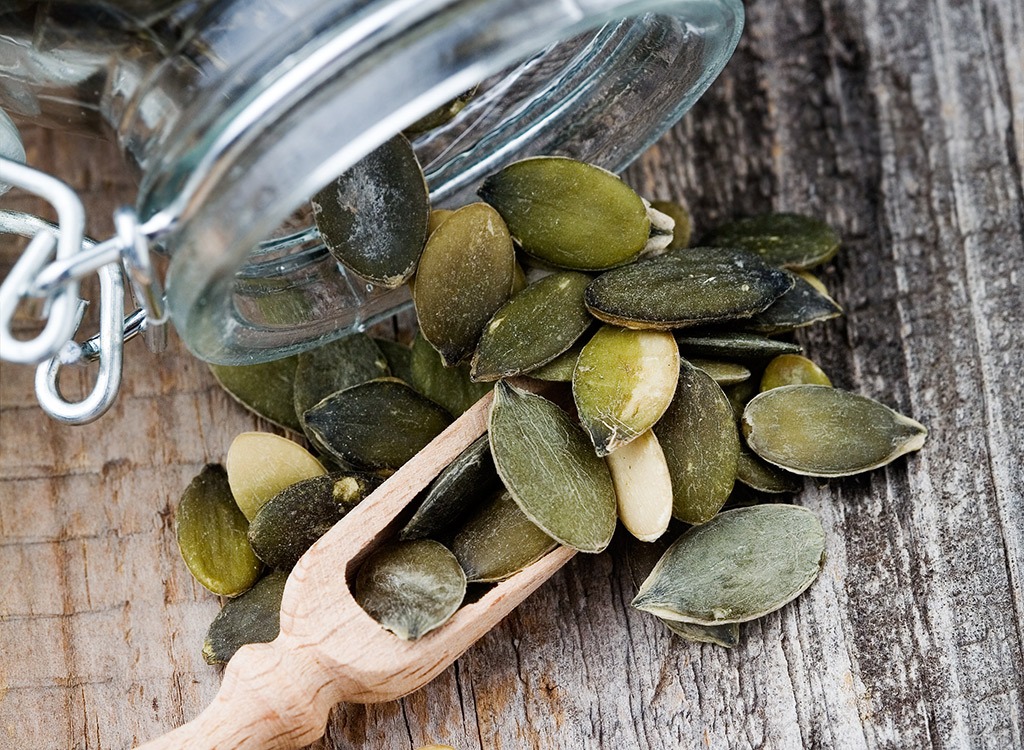
Pumpkin seeds are like crunchy little nuggets of Prozac Helper. They're one of the best food sources of an amino acid known as tryptophan, which helps the production of serotonin in your brain. Antidepressants help the brain to circulate serotonin, so if you're taking them now, these little pumpkin pick-me-ups may make them even more effective.
Eat This, Not That! Tip
Spice them up and swap them in now for snacks like Chex Mix, which is made from wheat, corn, and vegetable oil, all of which are high in omega-6 fatty acids. A study found that those with the highest intake of omega-6 fatty acids have twice the risk of becoming depressed.
Chamomile Tea
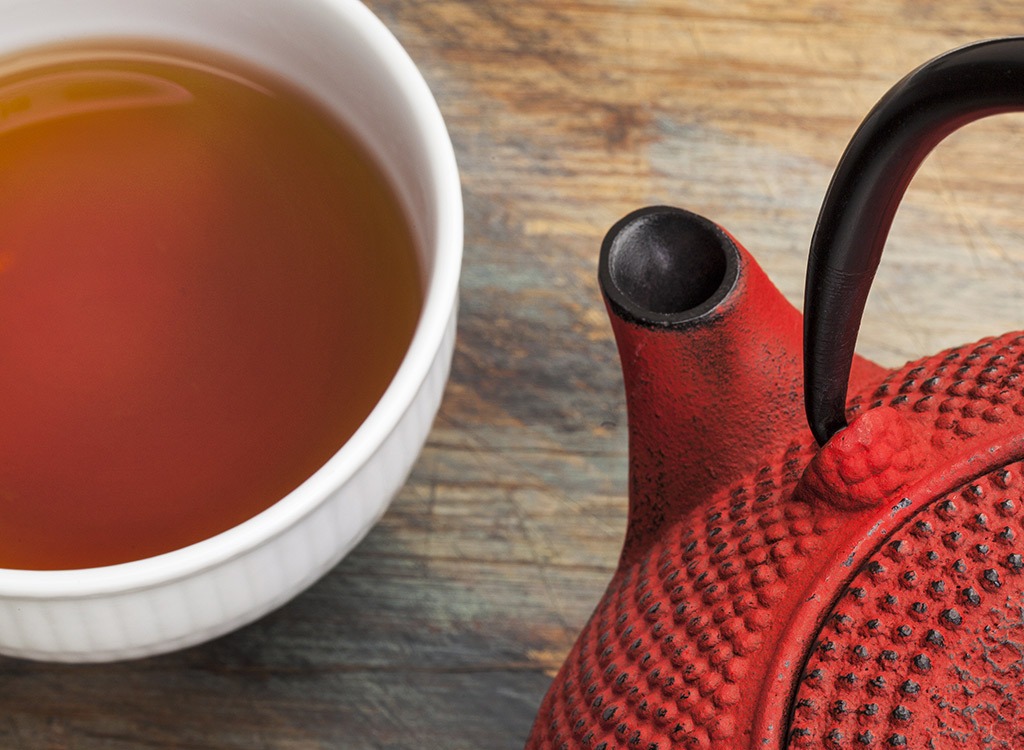
In summer, your body clock is like Dr. Dre—perfect beats. Once winter hits, the music gets all discombobulated. Your circadian rhythm is thrown off by the decrease of (natural) light, making it harder to sleep at night and to stay on top of your game during the day. Research shows that chamomile tea not only brings on better sleep, but actually improves your cognitive functioning during the day. Meanwhile, a 2013 study linked soft drinks to depression, particularly the diet variety—those who drank more than four cans a day were 30 percent more likely to have had depression, due partly to the artificial sweetener aspartame. (For more cola shockers, click on our eye-popping health reasons to give up soda.)
Eat This, Not That! Tip
We love tea so much, we made it part of our brand new weight-loss plan, The 7-Day Flat-Belly Tea Diet and Cleanse. Test panelists lost up to 10 pounds in just one week!
Blueberry Juice
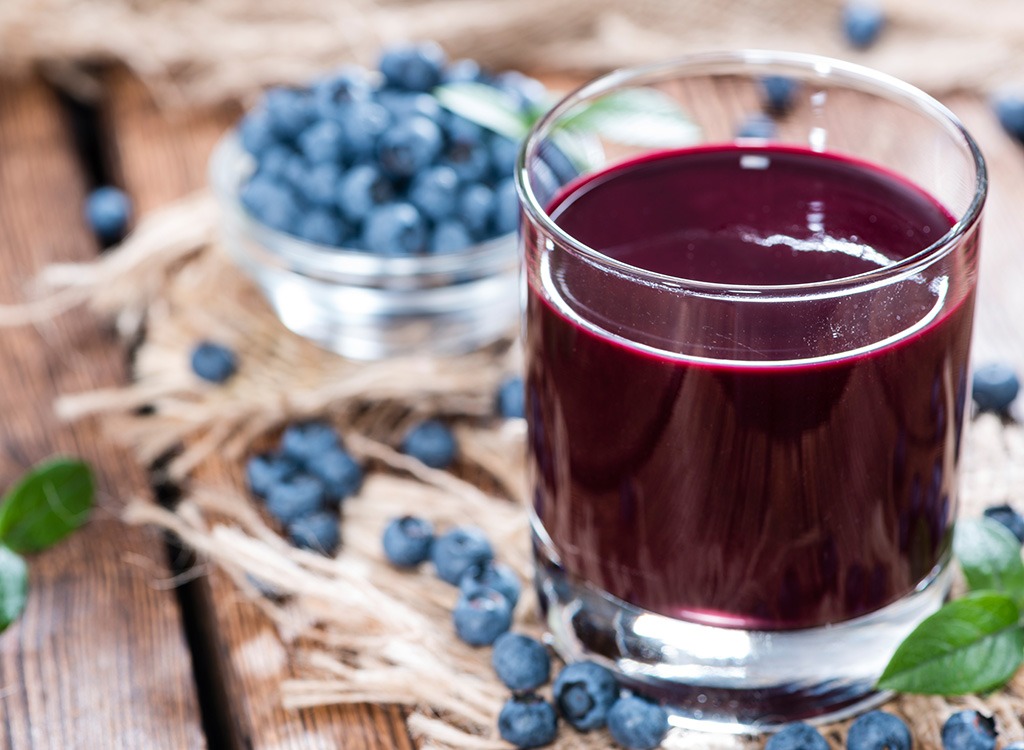
Darkly colored berries lead to weight loss, decreasing the formation of fat cells by up to 73%—that alone will improve your mood. But berries also carry heavy doses of vitamin C. Too little C—a possibility when you're hunkering down on comfort foods and no longer enjoying a summer bounty of tomatoes, peppers and fruit salads—can lead to fatigue, depression, low motivation, and the general feeling that you're sloshing around in wet snowboots 24/7.
Eat This, Not That! Tip
Avoid the imposter "juices"—V8 Splash is a pathetic 10 percent juice—and power up with R.W. Knudsen Just Blueberry. Add a glass in the AM.
Canola Oil
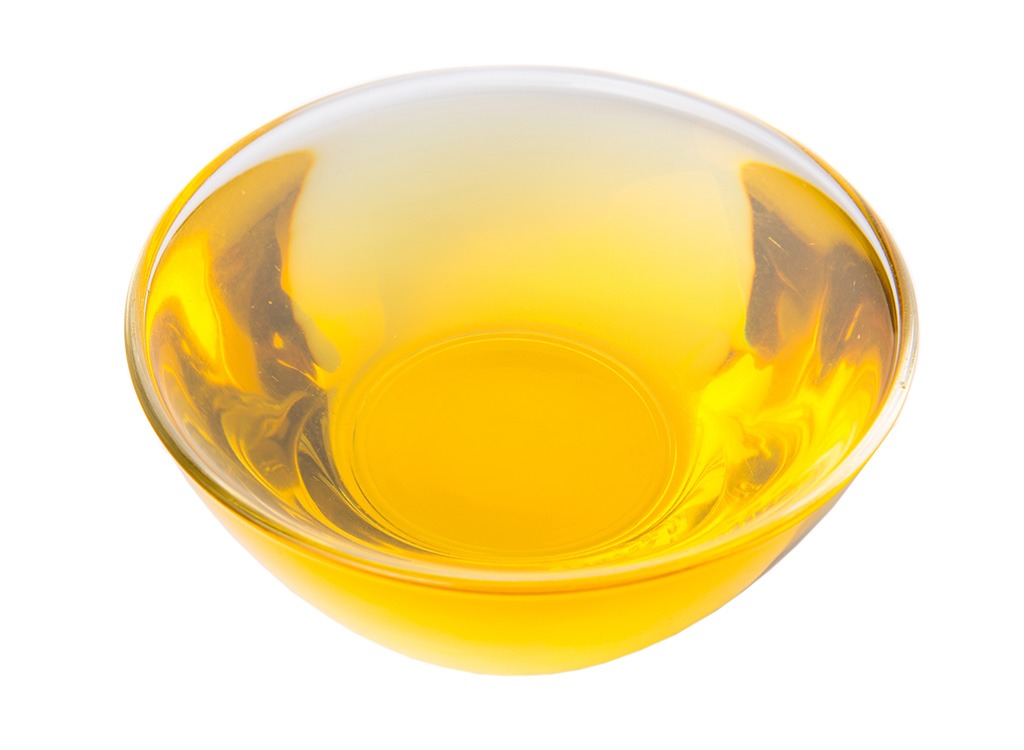
Canola oil is one of the cheapest sources of omega-3 fats and one of the easiest to incorporate into your diet. When consumed, these fats concentrate in your brain and help elevate your mood.
Eat This, Not That! Tip
Make a canola oil vinaigrette or use a little to sauté vegetables.
